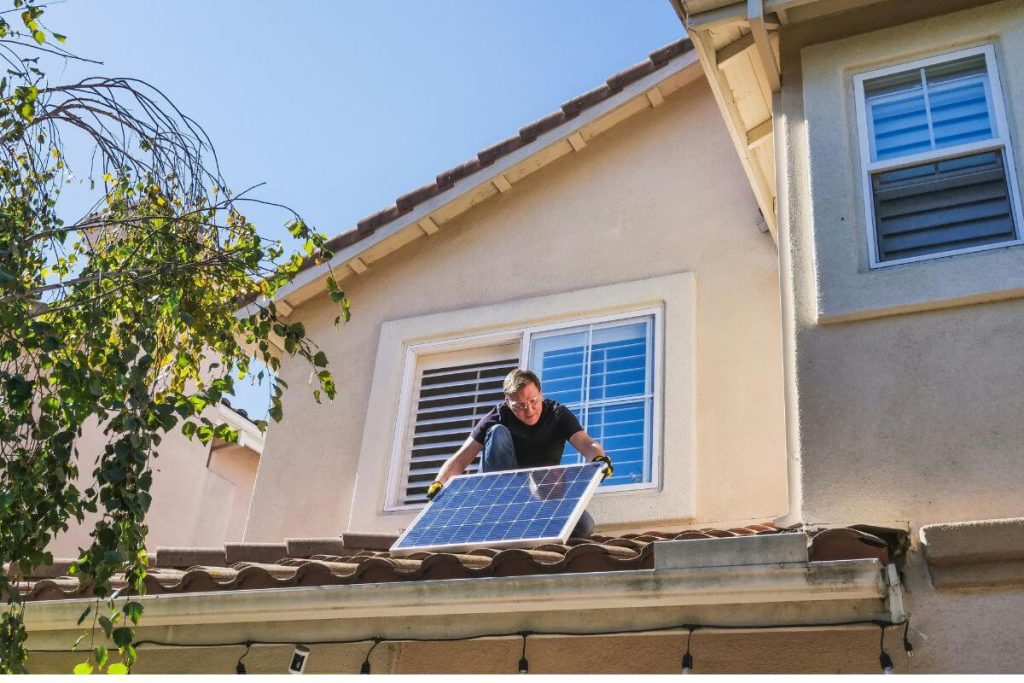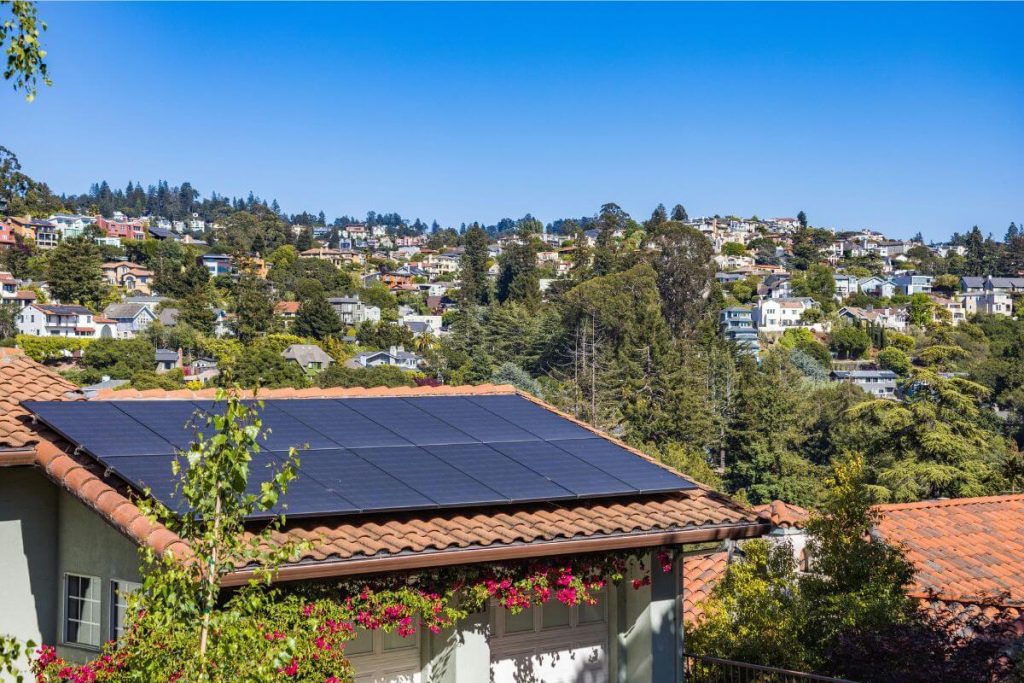
Hey, eco-warriors! Picture your home glowing with solar power, your electric car zipping along, and your smart thermostat keeping things chill—all thanks to renewable energy policies and eco-friendly technologies that make sustainable living a total vibe. These game-changing innovations and policies are slashing waste, saving resources, and shrinking your carbon footprint without making you ditch your Netflix binges or cozy nights in. In 2025, renewable energy policies are like the ultimate hype squad, making green tech affordable and fun. So, grab your reusable mug, and let’s dive into how these eco-friendly technologies and policies are powering a sustainable future!
Why Sustainable Living Is the Hottest Trend of 2025
Before we geek out over wind turbines and smart homes, let’s talk about why sustainable living is the glow-up we all need. Climate change is hitting hard—think blistering heatwaves, epic floods, and ecosystems sending distress signals. The United Nations warns we’ve got to cut greenhouse gas emissions by 45% by 2030 to dodge a climate disaster (UN Climate Change). That’s a big deal, but here’s the kicker: every step you take toward sustainable living, backed by renewable energy policies, is a win for the planet.
Renewable energy policies are like the fairy godmother of eco-friendly technologies, waving a wand to make clean energy affordable and widespread. From tax breaks for solar panels to mandates for renewable energy grids, these policies are turning green dreams into reality. Plus, they can save you some serious cash—lower energy bills, anyone? Let’s explore the eco-friendly technologies and renewable energy policies that are making sustainable living the coolest way to roll.
Top Eco-Friendly Technologies Powered by Renewable Energy Policies

These eco-friendly technologies are the superstars of sustainable living, and renewable energy policies are the stage crew making them shine. Here’s the rundown on the best green tech and the policies fueling them in 2025.
1. Solar Power: Your Personal Sunshine Power Plant
Solar power is the MVP of eco-friendly technologies, turning sunlight into clean electricity with zero drama. With renewable energy policies in your corner, going solar is easier than ever.
- How it works: Solar panels use photovoltaic cells to convert sunlight into power for your home, EV, or battery storage.
- Why it rocks: Solar cuts your carbon footprint and energy costs. In 2024, the U.S. installed 39.6 gigawatts of solar, powering over 7% of the nation’s electricity (Solar Energy Industries Association).
- Renewable energy policies: The Inflation Reduction Act (IRA) of 2022 offers a 30% tax credit for solar installations through 2032 (U.S. Department of Energy). States like California and Vermont have 100% clean energy mandates by 2035, boosting solar adoption.
- Sneaky tip: Not ready for a full solar setup? Grab solar-powered chargers or garden lights to start small.
2. Smart Home Systems: Your House, but Einstein-Level Smart
Smart home tech is like giving your home a sustainability superpower. These eco-friendly technologies save energy without you lifting a finger, and policies are making them more accessible.
- Smart Thermostats: Gadgets like Nest or Ecobee learn your habits and tweak temps to save up to 15% on energy bills, per Energy Star (Energy Star).
- Smart Lighting: LED bulbs with Philips Hue controls sip 75% less energy and last up to 25 years.
- Energy Monitors: Tools like Sense track usage, sniffing out energy wasters.
- Renewable energy policies: The Energy Independence and Security Act of 2007 sets efficiency standards, while states like New York offer rebates for smart thermostats to promote sustainable living (NYSERDA).
Your home’s basically a green genius now.
3. Energy-Efficient Appliances: Green Kitchen, Happy Planet
Old appliances can be energy vampires, but energy-efficient models are eco-friendly technologies that save the day. Renewable energy policies make upgrading a no-brainer.
- Why it’s clutch: Energy Star appliances use less power and water—like a washer that saves 33% on water.
- Next-level tech: Heat pump dryers recycle heat, using 50% less energy.
- Renewable energy policies: The IRA offers rebates for efficient appliances, and the Energy Policy Act of 2005 enforces efficiency standards. States like Massachusetts push clean energy adoption with appliance incentives (Mass Save).
- Hack it: Can’t buy new? Wash clothes in cold water or skip the dishwasher’s heated dry for quick wins.
4. Greywater Systems: Water Recycling for Sustainable Living
Water’s gold, and greywater systems are eco-friendly technologies that help you save it by reusing water from sinks or showers for irrigation or toilets.
- How it works: Filters redirect lightly used water, cutting freshwater use by up to 50%.
- Why it’s dope: Less waste eases pressure on water supplies and treatment plants.
- Renewable energy policies: While greywater-specific policies are emerging, California’s water conservation incentives and global examples like Medellin’s tax breaks for eco-tech support sustainable living (California Water Efficiency).
- Easy start: Try a Laundry-to-Landscape system to water your garden with laundry runoff.
5. Electric Vehicles & E-Bikes: Clean Rides, Green Vibes

Transportation’s a pollution heavyweight, but electric vehicles (EVs) and e-bikes are eco-friendly technologies changing the game. Renewable energy policies are putting them in the fast lane.
- EVs: Models like the Tesla Model Y or Chevy Bolt have zero tailpipe emissions. Over 16 million EVs were sold globally in 2024 (International Energy Agency).
- E-Bikes: Cheap, fun, and low-energy for short trips.
- Renewable energy policies: The IRA gives up to $7,500 in EV tax credits. Countries like France and China offer electrified transport incentives, and Ethiopia banned non-electric car imports in 2025.
- Pro move: Charge an EV with solar for a ride that’s practically carbon-free.
6. Composting Tech: Scraps to Soil, No Landfill Needed
Food waste is a landfill disaster, but composting tech turns it into garden magic. Renewable energy policies are helping make composting mainstream.
- Traditional Composting: A backyard bin lets microbes do the work.
- High-Tech Composters: Lomi devices transform scraps into compost in hours, odor-free.
- Why it’s fire: Composting cuts methane emissions and replaces chemical fertilizers.
- Renewable energy policies: Cities like Copenhagen, aiming for carbon neutrality by 2025, promote composting programs (City of Copenhagen). U.S. states like Vermont offer grants for community composting.
7. Green Building Materials: Homes Built for Sustainable Living
Building or renovating? Green materials are eco-friendly technologies that make your home a sustainability star, and policies are encouraging their use.
- Bamboo: Grows fast, super strong, and stylish.
- Recycled Insulation: Made from denim or plastic bottles, it’s cozy and green.
- Living Roofs: Plant-covered roofs insulate and support wildlife.
- Renewable energy policies: The IRA funds energy-efficient building upgrades, and cities like Seoul push net-zero buildings by 2030 (Seoul Metropolitan Government).
Renewable Energy Policies: The Fuel for a Green Future
Renewable energy policies are the secret sauce behind these eco-friendly technologies. Here’s a snapshot of what’s driving sustainable living in 2025:
- U.S. Inflation Reduction Act (2022): Funds solar, EV, and appliance incentives, though potential policy shifts post-2024 elections could tweak its impact (U.S. Department of Energy).
- State Clean Energy Mandates: Seventeen U.S. states have 100% clean energy goals, with Vermont’s new 2035 renewable standard leading the pack.
- Global Goals: China targets 33% renewable electricity by 2025, and the EU’s REPowerEU Plan aims for 45% by 2030, scaling up wind and solar (European Commission).
- City Innovators: Copenhagen’s carbon-neutral goal by 2025 and Shenzhen’s all-electric bus fleet show local policies in action.
- Hurdles: Permitting delays and tariff risks (like U.S. threats on solar imports) could slow progress, but renewables are still on track to overtake coal globally in 2025.
X posts are buzzing about renewables—India’s hyping its 500 GW goal by 2030, while Australia brags about its solar leadership. But some UK voices grumble about subsidy costs, keeping the debate spicy.
How to Start Your Sustainable Living Journey
Ready to embrace eco-friendly technologies and renewable energy policies? Here’s your roadmap:
- Scope Your Impact: Check energy or water bills to find savings opportunities. That ancient fridge? Time to rethink it.
- Baby Steps: Swap bulbs for LEDs, grab a low-flow showerhead, or use a smart plug to stop energy leaks.
- Leverage Policies: Look up tax credits or rebates for solar, EVs, or appliances at U.S. Department of Energy or local government sites.
- Stay Curious: Follow eco-influencers on X, watch YouTube for green DIYs, or join a sustainability group.
- Spread the Word: Share your eco-wins online to inspire others. One post could spark a composting craze!
Why Your Choices and Policies Matter
Every solar panel, e-bike ride, or compost bin you embrace—backed by renewable energy policies—pushes us closer to a low-carbon world. In 2025, renewables are set to become the world’s top power source, thanks to policies like the IRA and global clean energy targets (International Energy Agency). Your actions ripple out, inspiring friends and nudging companies to go greener.
No need to be a sustainability saint. Small moves, like using a smart thermostat or voting for pro-climate policies, make a dent. With renewable energy policies lowering costs, sustainable living is within reach for everyone.
Let’s Wrap It Up: Your Green Future Starts Today
Renewable energy policies and eco-friendly technologies are your VIP pass to sustainable living. From solar power to EVs, these innovations let you save the planet and your bank account while keeping life awesome. Policies like tax credits, clean energy mandates, and city-level pushes are making it happen, even with bumps like tariffs or red tape.
What’s your next green move? Maybe it’s scoping out solar incentives at U.S. Department of Energy, trying a high-tech composter, or hyping renewables on X. Whatever you choose, you’re part of a global squad keeping the planet vibing.
